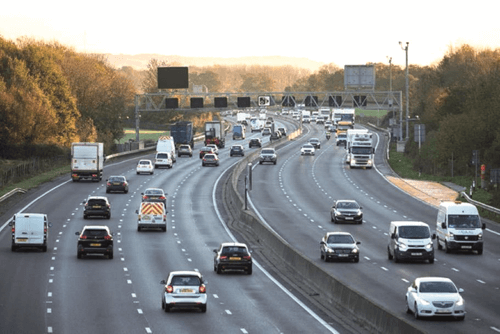National Highways is starting work on a series of enhancements on more than 60 miles of dynamic hard shoulder (DHS) motorway – where the hard shoulder is used by traffic in busy periods – by upgrading the central reservation safety barriers. The steel central reservation is to be replaced with a more modern concrete barrier design which the agency says is stronger than the existing metal barriers and will help to significantly reduce the risk of vehicles crossing over from one carriageway to another.
The work is taking place on seven sections of dynamic hard shoulder motorway and is scheduled to begin in the Midlands this month. Work will start on the M6 between junctions 4 and 5 on 14 March and is set to be completed by autumn. Work will also be carried out on the M62, M42, M4 and M1 and is set to be completed by 2025.
The conversion of DHS sections of motorway to all lane running (ALR) has been paused while alternative ways to operate the dynamic hard shoulder are considered. During the pause National Highways will be installing further safety measures where DHS motorways are in operation including upgrading the central reservation safety barrier.
As well as being safer, the concrete barriers are also said to be virtually maintenance free and last twice as long as normal metal barriers with less need for routine repairs. To minimise disruption while work to upgrade the barrier is carried out, three lanes will remain open to traffic. However, lane four will be closed and lane three narrowed to protect the workforce carrying out the upgrade. A 50mph speed limit will also be in place and occasional overnight closures may be put in place.
Paul Unwin, who is overseeing the upgrades for National Highways, said: “Safety is our top priority. Upgrading these barriers will improve journeys and significantly reduce the risk of vehicles crossing over from one carriageway to another, improving safety and reducing the duration of incident-related congestion. We will continue to deliver safety enhancements to these motorways, which are among the busiest in the country and are relied on by hundreds of thousands of people every day.”


